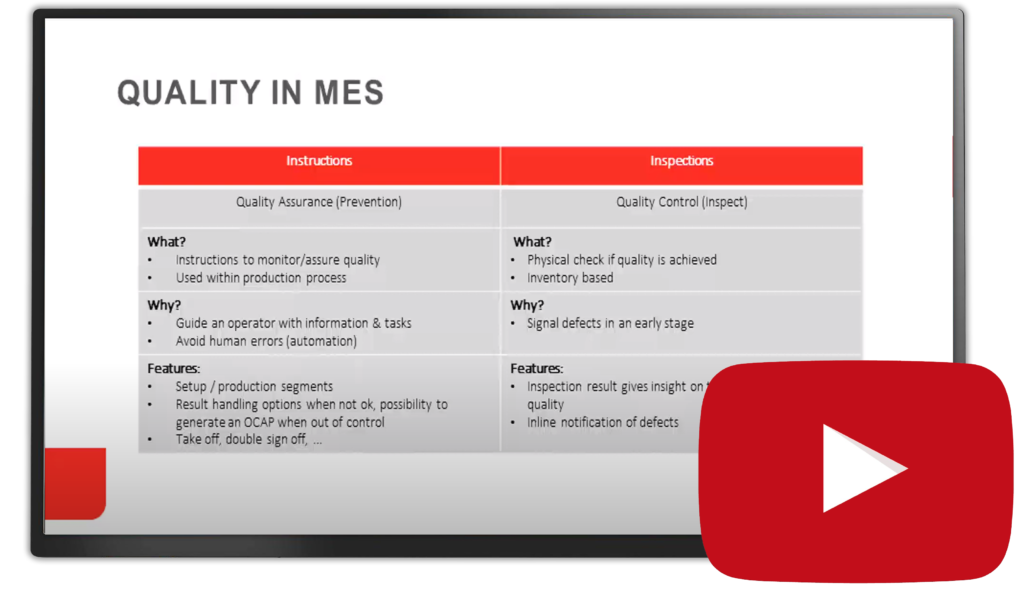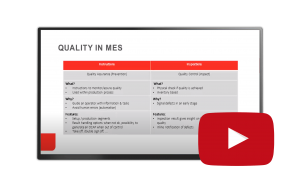Quality management is a core feature of the manufacturing execution system (MES). MES with integrated quality management tracks the production lines to detect possible problems so that production defects and failures can be reduced. Manufacturers have strict quality management standards and greater demands to increase performance and reduce prices. MES – integrated quality control offers these organizations the tools to monitor performance, optimize product experience for consumers, ensure compliance, and more.
The achievement of optimum quality control through the MES includes the concept of quality and processes for visibility and accountability. Manufacturers refer to these two objectives as instructions and inspections.
CREATING QUALITY “RULES” WITH INSTRUCTIONS
Instruction is the phase of deciding what quality entails for a particular process or product. It directs operators, offers information and assignments in order to prevent output defects. With precisely specified instructions, human error is reduced and the method of determining compliance with quality control is streamlined.
MES quality will also recognize incidents or outcomes that may activate an Out of Control Action Plan (OCAP). This plan guides workers in circumstances when processes or output are out of control. Companies may use MES to set out alerts and checkpoints for out-of-control circumstances, further minimizing the effect on quality.
Instructions can take place at the set-up level, where the initial rules are specified and explained, or in different parts of production.
KEEP AN EYE ON YOUR PROCESSES WITH INSPECTIONS
While the instructions offer guidance, inspection is how the manufacturer can keep tabs on the processes and ensure that the production rules are followed. Inspections are a vital aspect of quality management, since they offer a physical check to see how quality objectives are being accomplished. Of course, output is not only evaluated at the end of the manufacturing process. Through MES, producers will have a good picture of all stages of production. If issues are detected at an early stage, deficiencies may be remedied, greatly minimizing the damage and expense.

Objective MES adds the quality features that manufacturers need to achieve the most efficient production targets and increase their competitiveness. Objective allows easy setup of quality instructions and enables quick changes where necessary. From start-up to delivery of documents, such as operator orders, standardized operating procedures, and checklists, Objective allows producers to build and communicate clear production standards.
In the manufacturing segment, producers have tools to evaluate quality through Objective. And with the ability to build tasks, such as take-off and double sign-off, producers may add additional steps to maintain the quality control procedure.
Check out this summary video for an extended description of the quality features of Objective MES. To learn more about how Objective MES can support your company to operationalize efficiency, please contact us for more information.




